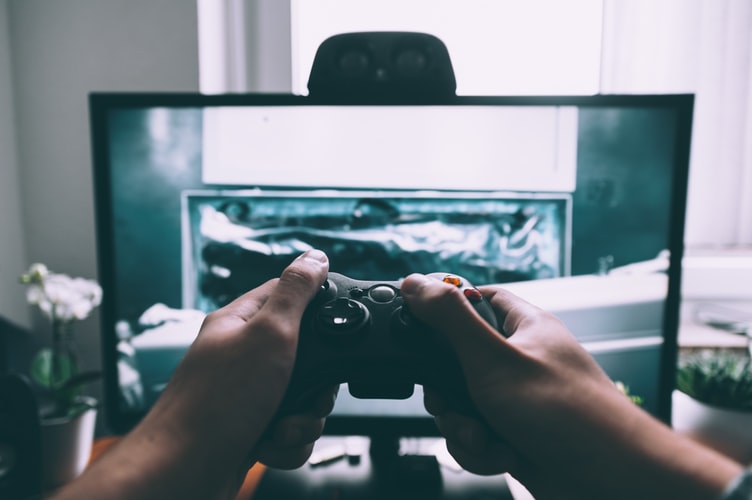Editor
15-Apr-2020
Not able to let go of your bad habits? Chances are, some of them aren’t as bad as you think after all.
We all have our share of habits we’ve tried to get rid of. Doodling. What if someone sees? “This house is a mess, I need to pull up!” Procrastinating? Yes, every day. Point being, while most of us are spending time shedding off on these “bad” habits; are they even “bad” to begin with?
While quarantined, this is the right time to make or break a habit, and most of them are undeservingly notorious. Glance below at a few good “bad” habits you don’t need to fret about anymore, because they are needed time or two!
Reminder: moderation is key…
BEING MESSY

Messy bedrooms, messy workdesks, and messy wardrobes. While nobody likes the sound (and vision) of those things, a study by the University of Minnesota Carlson School of Management confirmed that being messy helps boosts creativity and stimulate new ideas. While working in clean and organized ways promote generosity and healthy eating, it’s being a messy person that allows your creative juices to flow and come up with new ideas to solve situations and think fluidly. So creators don't bother about being a mess, chances are your creativity lies there.
PLAYING VIDEO GAMES

There is absolutely no denial to the very serious addiction to video games, but studies beg to digger that the same activity avails dozens of benefits. Hand-eye coordination becomes the major effect of playing games as well as reflex and reaction times get sharpened. Playing video games also helps train the mind in day-to-day tasks as well as sharpens the mind for activities like in learning languages. Kept in control, maybe that one hour of video gaming isn’t that bad after all.
PROCRASTINATING

The bane of all success, but is it truly? Procrastination, though fatal if done in extreme, is one of the biggest bad habits that can actually be put to good use. Studies suggest that holding onto tasks till the last moment helps you make better decisions. With less time and more urge to get your work done, you’ll not only get it done fast but also on a better level. Procrastinating also helps you prevent burning out, improve creativity, and reduce the chances of depression.
DAYDREAMING

Fun fact: we spend about one third of our waking lives daydreaming. And while daydreaming is most often associated with being lazy, it’s actually crucial for problem solving. That’s because thinking consciously all the time can make our thoughts rigid and unclear. So even if you’re not focused on the task at hand, you’re thinking about dealing with some other situation that makes it easier for you to come up with rational solutions to your problems. Similarly, daydreaming is the mind’s own way of keeping one in focus with their adjacent goals along with the current ones.
SKIPPING A SHOWER

Hear us out before you cringe. Now, nobody’s asking to skip every day but it’s backed by science that bathing everyday strips off your skin of its natural oils that your body needs to exfoliate and nourish on its own. Consequently, bathing on alternative days is one way to take care of your body (and the environment).
LOSING TEMPER

Being short-tempered is never the way to go, but piling it all inside is another worse thing to do. That’s why researchers conclude that venting out anger is not as rude as we think. It is said to reduce stress and depression as well as decrease the chances of heart attack. While it’s true being an angry loud mouth is unacceptable, it’s okay to let it loose once in a while.
FIDGETING
Before we go on about how frustrating it gets, let’s start off by mentioning that fidgeting burns calories, that is, helps you lose fat. According to experts, fidgeting is one of those activities which come under the category NEAT (non-exercise activity thermogenesis). This implies that even without any effort like sleeping or working out, fidgeting itself helps lose 350 kilocalories a day! So next time you find yourself doodling or fiddling with your thumbs, remember you’re also burning calories.
MUNCHING ON SNACKS

More often than not we’re avoiding snacks since we think it’ll lead to too much eating, or it’s just outright unhealthy. Many dieticians have come to argue and conclude that snacking doesn’t deserve as bad of a reputation as it has. Eating snacks helps keep hunger in control and helps prevent overeating during full meals; maintaining good health and weight. If you’re unsure of what to eat during snack-time, we recommend some fruits or nuts always stocked with you.
For more on wellness and holistic healing, read our December Digital Issue here: https://globalspaonline.com/global-spa-digital-fitness-special/
Stay safe, and stay healthy.